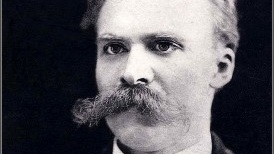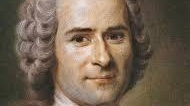Orphan Philosophers
/The fact that there are many notable orphans is a curious human phenomenon. There is research that indicates that cases of parental loss can lead to a life of crime. Yet, there are also many notable individuals who have lost a parent at a young age.
There are many examples of famous writers who lost a parent: Keats, Wordsworth, Coleridge, Swift, Edward Gibbon, and Thackeray. In David and Goliath, Malcolm Gladwell talks about how difficulties can produce greatness, among many others, he tells the story of psychologist Marvin Eisenstadt. In the 60s, he looked at the Encyclopedia Britannica and noted those who had more than one column entry. Then he found out that a quarter had lost a parent before age 10, 34.5% had a parent die by age 15, and 45% had a parent die by the age of 20.
Lucille Iremonger, a historian, identified something similar. Iremonger was researching the history of England from the 19th century to World War II, and she found that 67% percent of the Prime Ministers had lost a parent before the age of 16 (that was twice the rate of parental loss in the British upper class at the time). In the United States, twelve presidents have lost or had an absent parent at a young age: George Washington, Thomas Jefferson, James Monroe, Andre Jackson, Andrew Johnson, Rutherford Hayes, James Garfield, Herbert Hoover, Gerald Ford, Bill Clinton, and Barack Obama.
In my Intro to Philosophy class, I always try to give my students a little bit of background on philosophers. I talk about their parents, their social status, and how they made a living. I find these little tidbits of information quite interesting. Often when I am researching their lives, there is the recurring theme of the loss of a parent. So I decided to add philosophers to the list of notable orphans. There are probably more, but this list is quite surprising.
Aristotle
His father, Nicomachus, died when Aristotle was a child, and he was raised by a guardian.
Descartes
His mother died soon after giving birth to him. He was not expected to survive. Descartes' father, Joachim, was a member of the Parlement of Brittany at Rennes. René lived with his grandmother and with his great-uncle.
Dennett
His father was an intelligence agent during World War II in Lebanon. He died in an unexplained plane crash when he was 5.
Hegel
Hegel's mother died of a "bilious fever" when Hegel was thirteen.
Hobbes
His father got into a fight when he was four years old and left, he was raised by him, uncle.
Hume
His father died when he was two and he was raised by his mother.
Jarvis Thompson
Her mother, Helen Jarvis, died when Judith was six.
Kant
His father died when he was 22 and he had to leave the University to help support his family.
Leibniz
His father died when he was six, he was raised by his mother.
Nietzsche
His father died from a brain ailment when he was 5.
Rawls
He was not an orphan. Two of his brothers died after contracting diseases from him (diphtheria and pneumonia).
Rousseau
His mother died of puerperal fever nine days after his birth.
Russell
Bertrand Russell's mother died when he was 2 and his father died when he was 4. He was raised by his grandparents. His grandfather, former Prime Minister Earl Russell, died when he was 6.
Sartre
When Sartre was two years old, his father died of an illness contracted in Indochina
Voltaire
Voltaire’s mother died when he was 7 years old.
*
References:
Felix Brown and Phyllis Epps, “Childhood Bereavement and Subsequent Crime,” The British Journal of Psychiatry, Volume 112, Issue 491, October 1966 , pp. 1043-1048
Malcolm Gladwell, David and Goliath: Underdogs, Misfits, and the Art of Battling Giants, Little, Brown and Company, New York, 2013
Marvin Eisenstadt, “Parental Loss and Genius,” American Psychologist 33(3):211-23 · April 1978
Marvin Eisenstadt, Parental Loss and Achievement, International Universities Press, 1989
Ben-Ami Scharfstein, The Philosophers: Their Lives and the Nature of Their Thought, Basil Blackwell, 1980















